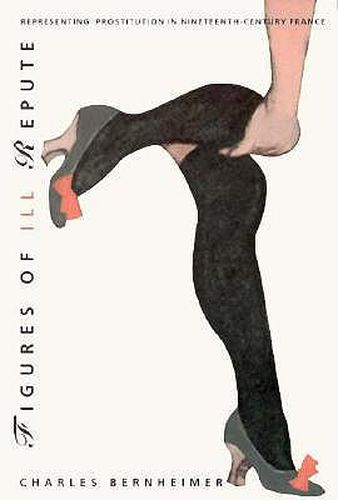Readings Newsletter
Become a Readings Member to make your shopping experience even easier.
Sign in or sign up for free!
You’re not far away from qualifying for FREE standard shipping within Australia
You’ve qualified for FREE standard shipping within Australia
The cart is loading…






Ubiquitous in the streets and brothels of nineteenth-century Paris, the prostitute was even more so in the novels and paintings of the time. Charles Bernheimer discusses how these representations of the sexually available woman express male ambivalence about desire, money, class, and the body. Interweaving close textual analysis with historical anecdote and theoretical speculation, Bernheimer demonstrates how the formal properties of art can serve strategically to control anxious fantasies about female sexual power. Drawing on methods derived from cultural studies, psychoanalysis, social history, feminist theory, and narrative analysis, this interdisciplinary classic (available now for the first time in paperback) was awarded Honorable Mention in 1990 for the James Russell Lowell prize awarded by the Modern Language Association for the best book of criticism.
$9.00 standard shipping within Australia
FREE standard shipping within Australia for orders over $100.00
Express & International shipping calculated at checkout
Ubiquitous in the streets and brothels of nineteenth-century Paris, the prostitute was even more so in the novels and paintings of the time. Charles Bernheimer discusses how these representations of the sexually available woman express male ambivalence about desire, money, class, and the body. Interweaving close textual analysis with historical anecdote and theoretical speculation, Bernheimer demonstrates how the formal properties of art can serve strategically to control anxious fantasies about female sexual power. Drawing on methods derived from cultural studies, psychoanalysis, social history, feminist theory, and narrative analysis, this interdisciplinary classic (available now for the first time in paperback) was awarded Honorable Mention in 1990 for the James Russell Lowell prize awarded by the Modern Language Association for the best book of criticism.